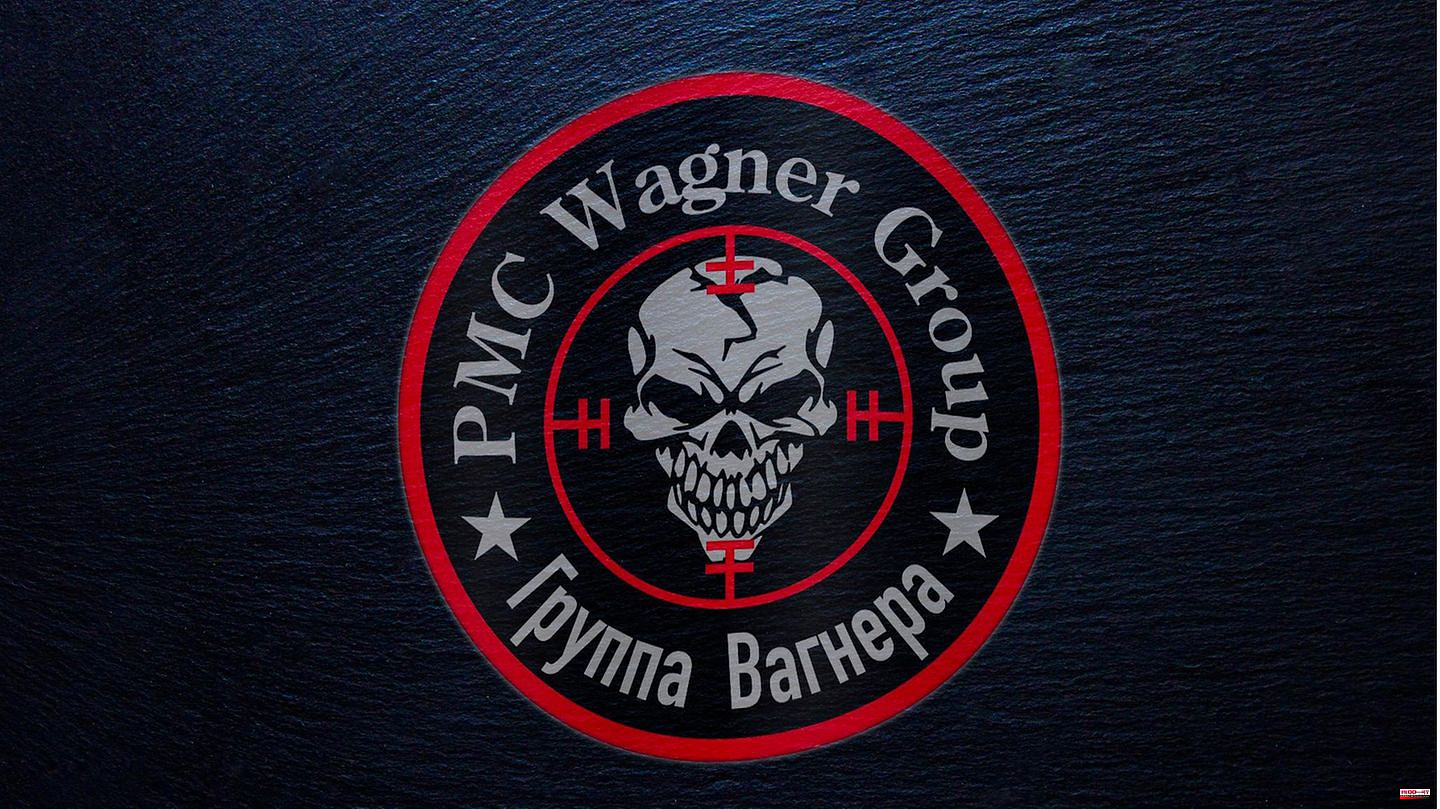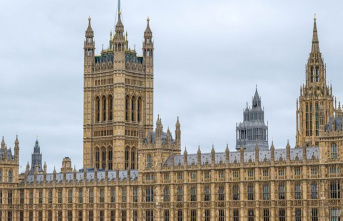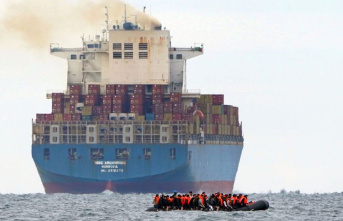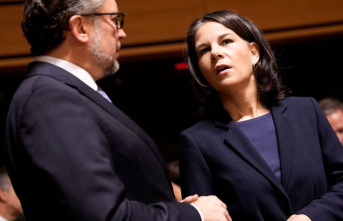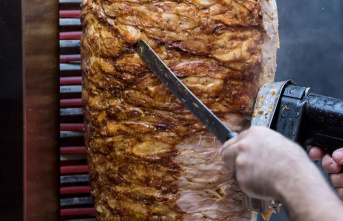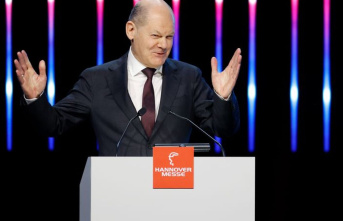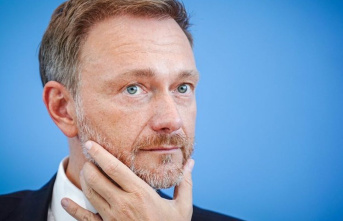Eight months after the beginning of the war, the Russian troops are standing with their backs to the border they have painted themselves, the loss of the strategically and symbolically important city of Cherson is probably only a matter of time. The Kremlin must have imagined things differently.
Russia lost most of its battle-hardened elite soldiers in the first months of the war. The conscripted supply troops need expert support. Appearance of the notorious group Wagner - Putin's elite army, which actually does not exist.
The Wagner group does not exist on paper. The paramilitary organization (PMC: Private Military Company) is not registered as a company in any country in the world. In Russia, running a mercenary army is even against the constitution. Numerous legends and myths are entwined around Wagner. Originally it was said that the 51-year-old former Russian secret service officer Dmitri Utkin was involved in its founding. The name also supposedly goes back to him - as an ardent admirer of the Third Reich, "Wagner" (alluding to Hitler's favorite composer) is said to have once been his fighting name.
However, according to research by the international research network Bellingcat, Utkin is little more than a "hired gun to give the 'Private Army' project a high-profile legend." The real head is Kremlin protégé Yevgeny Prigozhin, who is also called "Putin's cook" because of his role as the Kremlin's caterer. It was not until September that the oligarch officially acknowledged himself as the leader of the mercenary group.
However, Wagner is by no means a private armed force that can be bought. The organization should be viewed more as "a contract mechanism for the Russian Ministry of Defense and the GRU, the Russian military intelligence service," Kimberly Marten of Columbia University told the Grid news portal. Or to put it more simply: If the Kremlin wants to get involved militarily somewhere in the world, but can deny exactly that, Wagner is the means of choice.
The group is considered an elite unit because it is largely made up of veterans and now probably also includes foreign fighters. The mercenaries, who are or were active in more than 30 countries (including Syria, Libya and Central Africa), have repeatedly been accused of serious human rights violations and war crimes such as robbery, rape, torture and executions. As the US research institute "Foundation for Defense of Democracies" reports, Wagner also maintains indirect connections to the nationalist "Russian Imperial Movement", which offers paramilitary training and is classified by the USA as a terrorist group.
For Wagner, the Ukraine is something like "Ground Zero". The shadow army already played an important role for the Kremlin when it annexed Crimea in 2014. As the BBC reports, according to British military intelligence, around 1,000 of their "mercenaries" were in action at the time. Afterwards, Wagner served the Kremlin as an all-purpose weapon to protect its own economic and security interests - especially in Africa.
The group is said to have been involved in a series of false flag attacks in eastern Ukraine in the weeks leading up to the war, originally intended to give Russia a pretext for an attack.
So it is hardly surprising that the elite fighters were already involved in the (ultimately failed) storming of Kyiv. The Federal Intelligence Service now assumes that Wagner fighters were also involved in the murder of civilians in the Butscha suburb. In May, three Wagner members, two of them Belarusians, became the first mercenaries to be charged with war crimes by Ukrainian prosecutors. Wagner also left a bloody trail in the weeks and months that followed. "The Wagner group played an active role in taking cities like Popazna and Severodonetsk in Luhansk," Samuel Ramani of London's Royal United Services Institute (Rusi) told the BBC.
In Ukraine they fight side by side with regular Russian and pro-Russian units. Ramani refers to them as an "unofficial unit of the Russian army". Although Wagner's role in Putin's campaign is undeniable, the Kremlin continues to do just that. Conveniently, the Kremlin doesn't have to issue a death certificate for soldiers who don't even exist. Because Wagner is also said to have suffered massive losses. According to "Forbes" there was already talk of 3,000 dead in April.
The currently most prominent location for Wagner is probably Bachmut, about 100 kilometers north of Donetsk. For more than three months, the salt mining town has been under constant Russian fire, with the mercenaries on the front line.
Strategically, this has long since ceased to be about anything. However, one has simply sacrificed too much to turn back now, says the "Institute for the Study of War". And so Wagner boss Prigozhin continues to smash wave after wave of his elite fighters against the Ukrainian defense. "They treat them like disposable soldiers," a Ukrainian soldier in Bakhmut told the Washington Post. For "Putin's cook," who has repeatedly berated the military leadership as incompetent and is enjoying increasing respect among hardliners, Bakhmut is a trophy that cannot be resisted. According to reports, even his own son fights here.
As the BBC writes, Ukrainian President Volodymyr Zelenskyy recently attested the attackers to be "insane". "Day after day, for months, they have been driving people to their deaths there." According to the British "Independent", Russian troops led by Wagner entered the southern suburbs of Ivanhrad and Opytne, but were pushed back in part shortly afterwards.
The Kremlin is now not only relying on the Wagner group for attacks. Satellite images show that the mercenaries are currently digging trenches along the entire front line. The PMC also installs pyramid-shaped concrete blocks, so-called dragon teeth, which are intended to stop or at least slow down the advance of Ukrainian armored vehicles. Journalists close to the Kremlin, as reported by the "Spiegel" among others, described this defensive wall as the new Russian state border, while the Russian media simply called it the "Wagner Line". Wagner boss Prigozhin himself recently claimed in the Russian media that his company had not received an order to build fortifications. If so, then build Wagner based on your own operational decisions.
In fact, with Wagner's help, Russia might literally dig in for the winter. "The Russian armed forces are preparing defensive positions in order to consolidate their territorial gains over the winter," Rusi expert Ed Arnold told Der Spiegel. The dragon's teeth are not an all-purpose solution. They could slow down the advancing tanks, but only if the wall was protected by soldiers.
For Wagner, that means: New men are needed.
With his partial mobilization, Putin has already forced more than 200,000 people into his war. But these mostly involuntary recruits join the regular troops and not ominous shadow armies. So where do you get supplies from if not steal them?
In September, a disturbing video became public. You can see Wagner boss Prigozhin giving a speech in a Russian prison. The oligarch was on a promotional tour. In exchange for six months of service to the group, he promised the inmates pardon. According to the "Los Angeles Times", the Russian activist Olga Romanova said her organization had documented cases of around 11,000 prisoners who then joined Wagner - 7,500 of them are to be deployed in Ukraine. None of the recruits were committed for the necessary six months. "If you arrive in Ukraine and decide that this is not for you," he tells the prisoners, "we will execute you," Prigozhin said in the video.
"These increasingly shoddy recruiting practices are having a significant impact on Wagner's operational efficiency in Ukraine," reads a post on the Lawfare blog, run by the US think tank Brookings Institution. The question is whether Prigozhin necessarily needs new elite fighters for the next wave in Bakhmut, or whether "cannon fodder" is enough for him. But Wagner no longer just recruits from the penumbra. In recent months, PMC has become much more public, says Ramani vom Rusi to the BBC. "It recruits openly in Russian cities, on billboards and is described as a patriotic organization in the Russian media." As "Grid" reports, Wagner even advertises the assignment in Ukraine as an "unforgettable summer with new friends". Non-existence looks different.
The failure of the Russian general staff plays into the hands of Putin's cook. He now enjoys a high reputation, especially among the military bloggers, who are enormously influential in Germany. Prigozhin apparently makes no secret of what he thinks of the military leadership: "Send all these bastards to the front, barefoot and with machine guns," he was quoted as saying by a Telegram channel linked to Wagner, according to the Los Angeles Times, after Ukrainian troops conquered the city Lyman, part of the Russian annexation areas.
Prigozhin himself "is striving for more importance," according to the "Institute for the Study of War." The fact that Wagner has now stepped out of the penumbra suggests that Prigozhin is aiming for an official post in the Kremlin - possibly as a successor to Defense Minister Sergei Shoigu, who has fallen out of favor with Putin. The Wagner boss had a statement published through his company Concord on Wednesday, in which he not only supported Ramzan Kadyrov, the ruler of the Chechen Republic, but openly attacked Shoigu without naming him.
Putin himself has so far not criticized Prigozhin in a single word - even though the Kremlin chief is also the commander-in-chief ex officio. But his recent appearances have not gone unnoticed: Abbas Gallyamov, a political analyst and former Putin speechwriter, wrote on Telegram, according to the Los Angeles Times, that the Wagner boss is clearly positioning himself to appeal to those who are "disappointed with the current government ". While Putin's reputation is sinking every day, hardliners like Prigozhin are getting more and more support: "Wagnerists tell me that they would prefer him to Putin anytime, and I have the impression that he smells blood," Christo Grozev of "Bellingcat" tweeted at the end of September .
Quellen: "Spiegel"; "Forbes"; BBC; "The Grid"; "Los Angeles Times"; "Lawfare"; CNN; "Institute for the Study of War"; "Foundation for Defense of Democracies"; AFP

